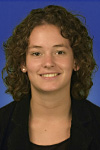These research is possible thanks to the great team of people:
Leila Niamir

Leila Niamir is working on her PhD looking at potential non-linearities in energy markets with a focus on the demand side. Specifically, she looks at household energy-related choices (energy related investments, changes in energy-use habits and switching among energy providers) and demand-side activation. Leila ran a large-scale household survey in the Netherlands and Spain and has developed an agent-based model to explore the cumulative macro-economic consequences of these behavioral changes and barriers for transition towards low carbon economy at the household level. We are also working on linking this agent-based model with a macro-economic Computational General Equilibrium model (CGE). We work together with Prof Bressers and Prof Voinov.
Koen de Koning
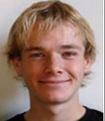
Koen de Koning is working on his PhD project 'Climate Change and Regime Shifts in the Flood-Prone Housing Market – an Agent-Based Modelling Approach'. Koen focuses on the economic and social consequences of climate change in the flood-prone property market looking specifically at the case of hurricane risks in the USA. He works with an empirical agent-based housing market model that explicitly simulates households decisions to choose a location to live, the market clearance and price negotiations processes and individual risk perceptions, which may change over time. An increase in flood probability and severity as a consequence of climate change, and change of information about risks may trigger structural shifts in the property market in flood-hazard areas, with potentially devastating consequences for the people living there. We work together with Prof Need and Prof Bin.
Kamia Handayani
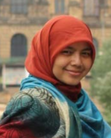
Kamia Handayani started her PhD project ‘Climate Change Mitigation and Adaptation: An Assessment on Indonesian Power Sector’. In her research Kamia focuses at two issues: the fact that the power sector emits significant amounts of greenhouse gases while at the same time the sector itself is also vulnerable for climate change. She applies bottom-up energy simulation models to assess the strategies and costs of climate change adaptation in the Indonesian power sector. Given the potential adaptation strategies the power sector needs to undergo in the climate change world, Kamia asses the cost-effectiveness of the Indonesian power sector transition towards low carbon energy sources. We work together with Dr. Krozer.
Shaheen Abdulkareem
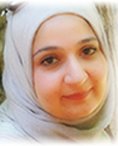
Shaheen Abdulkareem does her PhD on the interface between spatial agent-based modelling (ABM) and artificial intelligence (AI). Specifically, her thesis focuses on exploring how AI learning can be used to enhance decision making of agents in ABMs. Shaheen explores the impacts of various learning algorithms used to amplify social, spatial and institutional intelligence performed either on individual or group level. She applies it to two spatial ABMs: cholera diffusion disease model to study individual protective behavior, and flood risk housing market model to study expectation formation. We work together with Dr. E-W Augustijn.
Mohammad Assaduzzaman
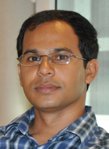
The PhD research of Asad is on climate change adaptation and changes in livelihood options of some of the most poorest communities in Bangladesh. He focuses specifically on coastal areas where the issue of adaptation to climate change is particularly urgent. This research uses survey and focus groups methods to understand the alternatives that are available for poor fishing communities in coastal areas, including climate-driven migration.We work togehter with Prof Lovett.
Saman Ghaffarian

In the field of disaster recovery, the PhD project of Saman Ghaffarian focuses on combining remote sense image analysis and agent-based modelling to study recovery pathways. Saman applies this combination of methods to understand resilience of urban and rural communities in the aftermath of the Typhoon Haiyan in Philippines. The project is led by Prof. Kerle.
Alumni
Ju-Sung Lee

Ju-Sung Lee has been a Post-Doctoral researcher in 2014-2015. He has been the leading researcher on the multinational project funded within the 'Digging Into Data' initiative. Ju-Sung applies advanced statistical techniques and social network analysis on the data coming from social simulations. Ju-Sung now works as Assistant Professor at Erasmus University Rotterdam.
Rianne van Duinen
|
Rianne van Duinen did her PhD (2010-2015) working on farmers adaptation to droughts. She carried out a survey among Dutch farmers exploring their perceptions of drought risks, how they may potentially change with adverse consequences of climate change, farmers adaptation decisions and the role of social networks in these processes. In addition, Rianne has been developing an agent-based economic model to study cumulative consequences of these individual behavioral choices on economic and environmental macro metrics.
We have been working on this together with Prof. Anne van der Veen and Dr. Peter Geurts. |
